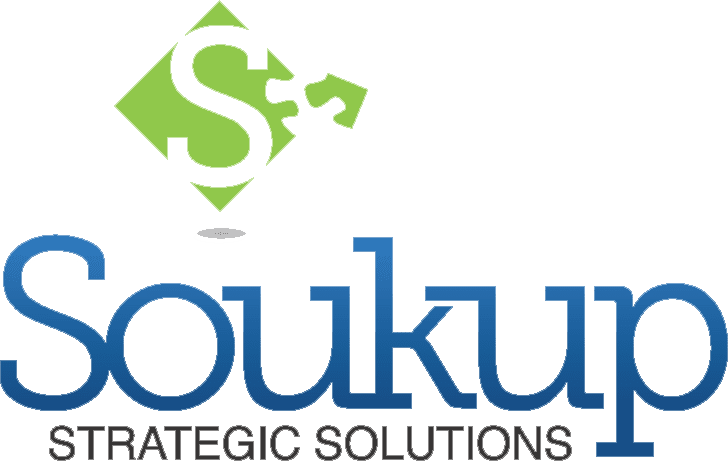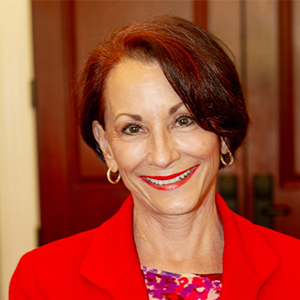Nonprofit organizations play a vital role in creating stronger, more compassionate communities. From fighting poverty to preserving the environment, they work for the public good—often powered by charitable giving, grants, and volunteers. But today’s nonprofits face complex challenges that can make it difficult to stay effective, sustainable, and focused on impact.
That’s where organizational assessments for nonprofits come in. These tools help leaders understand their strengths and gaps, make informed decisions, and plan for the future with clarity. In this article, you’ll explore how assessments can enhance strategy, build capacity, strengthen accountability, and ultimately help your nonprofit achieve greater mission-driven impact.
What Are Organizational Assessments for Nonprofits?
Organizational assessments are structured processes that enable an organization to comprehensively evaluate its internal functioning, external relationships, resources, and effectiveness in achieving its mission. These assessments may take various forms, including self-assessments, external evaluations, benchmarking, and diagnostic tools. They can focus on the whole organization or target specific components such as governance, financial management, program delivery, stakeholder engagement, or technology infrastructure.
At their core, organizational assessments seek to answer fundamental questions: Are we fulfilling our mission effectively? Do we have the right resources and structures in place? Where are our strengths and weaknesses? By generating systematic, evidence-based insights, these assessments provide a foundation for informed action.
Types of Organizational Assessments
- Self-assessments: Conducted internally by staff or leadership to identify performance gaps and opportunities.
- External assessments: Facilitated by consultants or third parties for objective insights and benchmarking.
- Specialized tools: Frameworks such as SWOT analyses, balanced scorecards, or nonprofit-specific diagnostic models that help organizations evaluate readiness, capacity, and effectiveness.
Core Questions Assessments Help Answer
- Are we allocating our resources effectively?
- How aligned are our programs with our mission?
- What are our biggest strengths—and most urgent weaknesses?
- How can we better engage staff, Board members, and stakeholders?
How Organizational Assessments Strengthen Strategic Decision-Making
One of the most significant contributions of organizational assessments is their impact on strategic direction. Strategic planning, when not grounded in a clear understanding of organizational realities, risks becoming aspirational rather than actionable. Assessments provide the data and perspective needed to make bold yet realistic decisions that lead to sustainable impact.
For example, an assessment may uncover that while program outcomes are strong, financial systems are outdated. Or it might reveal a need for new partnerships or additional training to align staff skills with program needs. Regular assessments also help nonprofits stay adaptable amid changing conditions—allowing them to anticipate challenges and seize opportunities rather than react to them.
Using Assessments to Build Capacity and Strengthen Your Nonprofit
Capacity building is the process by which nonprofits strengthen their abilities to fulfill their missions over time. Organizations often need to build capacity in areas such as fundraising, governance, human resources, technology, and communications. Without a clear understanding of where capacity gaps exist, efforts to strengthen an organization may be scattershot and inefficient.
Organizational assessments illuminate these gaps with precision. Tools such as SWOT analyses (Strengths, Weaknesses, Opportunities, Threats), balanced scorecards, or specialized nonprofit assessment frameworks provide the data necessary to prioritize investments in capacity. For instance, an assessment may indicate that board members lack clarity regarding their roles, leading to ineffective governance; or that high staff turnover signals the need to improve workplace culture and compensation.
By addressing specific needs rather than relying on one-size-fits-all solutions, nonprofits can use their resources more efficiently—fostering resilience, growth, and sustainability.
Accountability and Transparency: The Role of Organizational Assessments
Nonprofits are accountable to a diverse array of stakeholders: donors, beneficiaries, staff, volunteers, regulatory agencies, and the broader public. The expectation is not only that these organizations steward resources ethically and efficiently, but also that they communicate their progress and challenges openly. Organizational assessments are central to this accountability.
By systematically documenting performance, resource utilization, and organizational health, assessments create a culture of transparency. Nonprofits can share assessment findings in annual reports, grant applications, or community forums, demonstrating their commitment to learning and improvement. In a sector where trust is foundational, such transparency can differentiate an organization, attracting funders and partners who value rigor and honesty.
Organizational assessments also form the basis for genuine dialogue with stakeholders. Rather than relying on anecdotal evidence, nonprofits can engage stakeholders using concrete data, inviting them into conversations about priorities, challenges, and future directions. This participatory approach not only builds trust but can also spark new ideas and energy for collective action.
Proving Your Impact: How Assessments Demonstrate Value
The ultimate measure of a nonprofit’s success is its impact—how much it improves lives or advances its mission. However, impact is often challenging to quantify, especially when outcomes are long-term or multidimensional. Organizational assessments help bridge the gap between activity and impact.
Through rigorous evaluation of programs, operations, and outcomes, assessments provide evidence of what is working and what is not. They enable nonprofits to demonstrate their effectiveness to funders, regulators, and communities, justifying continued investment and support. In an era of heightened scrutiny and competition for resources, the ability to document impact is crucial.
Moreover, assessments foster a culture of continuous improvement. Rather than assuming that past success will guarantee future results, nonprofits that embrace assessment are constantly learning, experimenting, and refining their approaches. This commitment to excellence not only advances the mission but also positions nonprofits as leaders and innovators in their fields.
Driving Change and Renewal Through Organizational Assessments
Change is a constant in the nonprofit sector. It is critical for your nonprofit to adapt to new technologies, shifting demographics, policy changes, and evolving stakeholder expectations. Yet, change is often difficult, especially when it involves challenging long-standing practices or confronting uncomfortable realities.
Organizational assessments provide the impetus for change by highlighting areas where transformation is necessary. Armed with assessment findings, you can make the case for change, mobilize support, and guide the organization through transitions. Whether restructuring roles, adopting new technology, or redefining programs, assessments provide a roadmap for strategic, intentional renewal.
Importantly, assessments also help organizations celebrate progress and successes. By documenting improvements over time, your nonprofit can recognize the hard work of staff and volunteers, reinforcing motivation and morale. This positive reinforcement helps sustain change efforts and fosters a culture of optimism and possibility.
Overcoming Challenges and Applying Best Practices in Nonprofit Assessments
While the value of organizational assessments is clear, implementing them is not without challenges. As a nonprofit leader, you may face resource constraints, resistance to the assessment (some may view the process like a trip to the dentist—necessary, but a bit uncomfortable), or lack of expertise in assessment methodologies. To maximize value, it is essential to approach assessments thoughtfully.
Common Challenges in the Assessment Process
- Resource constraints: Limited staff time or budget can make comprehensive assessments difficult.
- Resistance to evaluation: Some may perceive assessments as criticism rather than opportunity.
- Data gaps: Incomplete or inconsistent data can hinder analysis and decision-making.
Best Practices for Meaningful Assessments
- Engage staff, Board members, and stakeholders throughout the process to build buy-in.
- Choose tools and frameworks suited to your organization’s size, mission, and context.
- Balance quantitative data (metrics, budgets) with qualitative feedback (staff, beneficiaries).
- Communicate findings transparently and act on them.
- Reassess regularly to track progress and adapt to change.
When approached thoughtfully, assessments can move from a checklist exercise to a powerful catalyst for growth and innovation.
Turning Insight Into Action: Organizational Assessments for Nonprofits
Organizational assessments for nonprofits are powerful tools that strengthen effectiveness, accountability, and long-term impact. By grounding strategic decisions in evidence, identifying capacity gaps, and fostering transparency, these assessments help your nonprofit fulfill its mission with clarity and confidence. Though the process can be challenging, the rewards are substantial: stronger organizations, deeper impact, and a more resilient nonprofit sector. For nonprofits committed to advancing the public good, there’s no substitute for the insight, direction, and continuous improvement that organizational assessments provide.
As you consider your organization’s next steps, remember that assessment is only the beginning—the true value comes from acting on what you learn.
At Soukup Strategic Solutions, we help nonprofits turn insight into action. Our team guides organizations through comprehensive organizational assessments, helping them identify strengths, uncover opportunities, and create data-driven plans for sustainable growth. If your nonprofit is ready to strengthen its capacity and amplify its impact, schedule a consultation with our team today.






